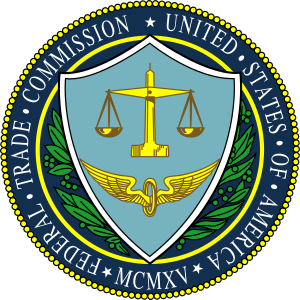
| Entities |
In March 2023, the FTC submitted its budget justification for its program level of $590,000,000 and 1,690 FTEs. The FTC also submitted a performance plan for FY 2023-2024 and a performance report for FY 2022.
The U.S. House Subcommittee on Innovation, Data, and Commerce of the House Energy and Commerce Committee held a hearing on April 18 on the FTC. In announcing the hearing, House Energy and Commerce Committee Chair Cathy McMorris Rodgers (R-WA) and Innovation, Data, and Commerce Subcommittee Chair Gus Bilirakis (R-FL), said
A critical responsibility of Congress is to regularly review federal agencies and act, if need be, to provide agencies with direction and guardrails that ensure transparency and accountability. This oversight hearing is long overdue. The last time the FTC appeared before the Energy & Commerce Committee was in July 2021, and Republicans argued for a number of reforms that have not been adopted. The FTC hasn’t been reauthorized since 1998 and under Chair Khan’s leadership has been operating without input from the representatives directly accountable to the American people. Since taking over, there has been a mass exodus of career staff and the resignation of every Republican Commissioner, raising serious concerns. We look forward to hearing from FTC Chairwoman Khan, and Commissioners Slaughter and Bedoya, about ensuring the agency is acting in the best interests of Americans, especially on important issues like protecting Americans from scams and fraud, as well as abuses of their data privacy and security.
In advance of the hearing, committee staff prepared a Hearing Memo.
According to a Kelley Drye post, the budget request falls into several areas:
- More money: The FTC is requesting a budget of $590 million and 1,690 full-time staff. By comparison, the FTC requested $490 million and 1,440 FTEs in its 2023 budget and $389 million and 1,250 FTEs in its 2022 budget. In relation to the agency’s 2020 requested budget ($312 million), this represents nearly a doubling of agency budget requests in the past four years, further emphasizing Chair Khan’s commitment to increasing the agency’s influence and impact.
- More investigations, especially in privacy and data security: The Privacy and Identity Protection program is slated to receive the most additional full-time employees (FTEs) under the expanded budget request (from 79 to 103 proposed FTEs), with Financial Practices and Marketing Practices in the runner-up spots (14 and 12 FTE increases, respectively). The FTC states it intends to use additional resources in part to investigate and litigate more matters involving health privacy and children’s privacy; unfair or deceptive practices by platforms; frauds using new technologies in the areas of online and mobile transactions; harmful practices in multilevel marketing and the gig economy; and unlawful conduct in the fintech and payment processing space.
- More rulemaking and POA compliance monitoring: The agency’s rulemaking efforts aren’t slowing down anytime soon: additional FTEs are in the plan for the Office of Policy Planning (OPP) to increase rulemaking capacity, among other things, and the agency is also seeking additional economists to “help the agency assess the costs and benefits of alternative policy approaches” and provide guidance on rulemakings. In addition, increased resources will also be used for “monitoring compliance with Notices of Penalty Offenses,” which are part of the agency’s initiative to deter fraud market-wide.
- More 6(b) studies: Under its 6(b) authority, the FTC can issue orders to companies to provide information outside the context of a law enforcement investigation. Section 6(b) orders operate as subpoenas, legally compelling targets to share information on requested topics. The agency is seeking additional resources in OPP and in its newly announced Office of Technology to carry out these 6(b) studies, which will be used for “developing and implementing long-range competition and consumer protection enforcement and policy initiatives and advis[ing] staff on cases raising new or complex policy and legal issues.” New 6(b) orders on two separate topics are already on deck for the FTC’s March 16 open meeting (deceptive advertising on social media and business credit reporting agencies). Former commissioner Phillips raised some interesting concerns regarding the agency’s current use of its 6(b) authority, arguing that recent inquiries have been too broad and unlikely to yield usable information.
In April 2023, the U.S. Chamber of Commerce wrote to the U.S. Senate and House Appropriations Committees “to express grave concerns about the leadership of Lina Khan at the [FTC], and about the state of due process and accountability at the Commission.” The Chamber “strongly urge[d] Congress’ [to use its] power of the purse to conduct robust oversight of the FTC’s activities and practices and reject any budget increase for the FTC for FY 2024. We also encourage you to consider including riders that provide common sense guardrails for the agency’s actions.”
The Chamber’s letter hit three key themes: The FTC’s Unauthorized Regulatory Campaign, Broader Agency Mismanagement, and Lack of Agency Independence.